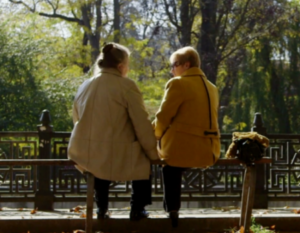Jansen Hospice has been committed to providing compassionate palliative care to Westchester County, NY since 1984
Jansen’s top priority is to ensure every patient has dignity, hope, and peace during treatment of their serious and life-threatening illness. It can be difficult to manage your physical, emotional, and spiritual needs during this time. That’s why we’re committed to providing support in these areas for both the patient and their family.
Hospice care vs. Palliative care
Hospice and palliative care both serve to provide comfort, reduce stress, relieve symptoms, and offer emotional support. Patients who receive these services are facing life-threatening illnesses that may or may not be curable.
Palliative care is the overall term for care during a chronic or life-limiting illness. This may be longer term and involve more medical involvement to cure the illness. Hospice care is a type of palliative care that comes towards the end of a patient’s life. This usually happens when the patient is given weeks to months left with no expectation to cure the illness but instead receives pain management care.
Palliative care in Westchester, NY with Jansen
Our Palliative Care is dedicated to caring for the whole person: body, mind, and spirit.
Jansen works with the palliative care team at New York Presbyterian/Lawrence Hospital and the Lawrence Home Care of Westchester staff to support symptom management for patients. Helping family members is an essential part of our mission, and our exceptional staff and professionally trained volunteers are available when needed most.
There are 5 stages of palliative care:
Stage 1: Early Palliative Care
The first stage of palliative care focuses on advance care planning. You will work with a team of medical, guidance, and therapist professionals who will help determine your long-term needs in order to create a treatment plan and overall long-term schedule.
Stage 2: Treatment Palliative Care
After creating your treatment plan, you begin treatment. Treatment looks different with each patient but may include some combination of medications (treatment and pain management), outside exercise, and counseling. It is recommended that your treatment plan exhibits emotional, spiritual, and medical care to ensure you are as holistically supported as possible.
Stage 3: Transition Palliative Care
Transition care is initiated when the illness has progressed and your treatment is no longer effective. Your care transitions to management which means continuing your treatment plan but adding more pain management and emotional support.
Stage 4: End-of-Life Palliative Care
At this point, you have been diagnosed with only a short amount of time left. Your team is now focused on creating a peaceful and comfortable existence so you can enjoy these moments as much as possible. Treatment is no longer an option so symptom management is necessary. Patients will typically return to the comfort of their home to be surrounded by their loved ones.
Stage 5: Bereavement Palliative Care
Bereavement care focuses on supporting your family and friends in coping with their great loss. The goal is to help your loved ones heal without you. This support can happen before, during, and after their loss.



